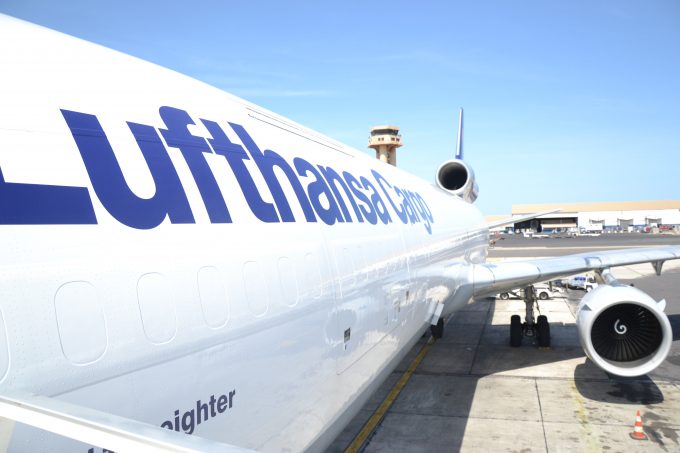Deutsche Bahn to cut 30,000 jobs after first-half loss
Forget the job losses if DSV takes over DB Schenker – Germany is facing that ...
TFII: SOLID AS USUALMAERSK: WEAKENINGF: FALLING OFF A CLIFFAAPL: 'BOTTLENECK IN MAINLAND CHINA'AAPL: CHINA TRENDSDHL: GROWTH CAPEXR: ANOTHER SOLID DELIVERYMFT: HERE COMES THE FALLDSV: LOOK AT SCHENKER PERFORMANCEUPS: A WAVE OF DOWNGRADES DSV: BARGAIN BINKNX: EARNINGS OUTODFL: RISING AND FALLING AND THEN RISING
TFII: SOLID AS USUALMAERSK: WEAKENINGF: FALLING OFF A CLIFFAAPL: 'BOTTLENECK IN MAINLAND CHINA'AAPL: CHINA TRENDSDHL: GROWTH CAPEXR: ANOTHER SOLID DELIVERYMFT: HERE COMES THE FALLDSV: LOOK AT SCHENKER PERFORMANCEUPS: A WAVE OF DOWNGRADES DSV: BARGAIN BINKNX: EARNINGS OUTODFL: RISING AND FALLING AND THEN RISING

Lufthansa Cargo is to axe 500 jobs globally, as its parent group restructures to cut costs and re-size the business in expectation of lower passenger numbers.
This week, the group announced it was implementing the second stage of measures.
While it has now secured sufficient financing from governments in Germany, Austria and Switzerland, it noted that “the complete repayment of government loans and investments, including interest payments, will place an additional burden on the company in the coming years, making sustainable cost reductions inevitable for this reason as well”.
A spokesperson for Lufthansa Cargo said the division would “support the restructuring and continue to optimise its cost position”.
With 100 fewer aircraft in the fleet, cargo volumes may fall, thus requiring fewer staff, he explained.
“We expect some 500 jobs will be reduced in [Lufthansa Cargo] worldwide by 2023, in particular as a result of the changes in the offering of belly cargo routes in the wake of the corona pandemic. Concrete measures are currently being elaborated. If any changes should arise for our customers as a result, we will of course inform them as early as possible.”
Lufthansa Cargo has already reduced the size of its executive board, with chief financial officer Martin Schmitt moving to the passenger group in April. Chief executive Peter Gerber has taken on finance and human resources on an interim basis, and has also become labour director.
The carrier said recently it was outsourcing general cargo handling at its Frankfurt Cargo Centre, but the spokesperson said the decision had been taken at an “earlier stage, irrespective of the current situation, and essentially reorganises our internal service provider structure”.
The decision was met with approval by consultant Stan Wraight, who said it was a good strategy – if the rationale was to focus scarce resources on what is offered to the industry in the way of products.
“The key message is that Lufthansa is giving general cargo to Fiege, which we must assume has lower costs, thus greater efficiencies, while retaining the ‘special’ cargo for itself. Read into that a smart strategy – if it is thinking the way I hope it is.”
Mr Wraight added: “It offers forwarders cost-effective capabilities and a low-cost solution, but also acknowledges products that Lufthansa wants to promote for itself in the market, with high-quality and expeditious handling, value-add components and so on, which Lufthansa will do itself to ensure standards demanded will be met.”
Overall, the Lufthansa group is cutting the number of executive positions by 20%, while 1,000 jobs in administration are set to go.
There will still be, said the carrier, a surplus of staff, numbering some 22,000 full-time positions, “even in the period following the crisis”. But it said “in contrast to many of its competitors, Lufthansa will continue to avoid lay-offs, wherever possible”, and is in talks with unions.
Lufthansa has already cut 22 aircraft: six A380s; 11 A320s; and five 747-400s. A maximum of 80 will join the fleet up to 2023 – cutting the expected investment in new aircraft by half.
Comment on this article